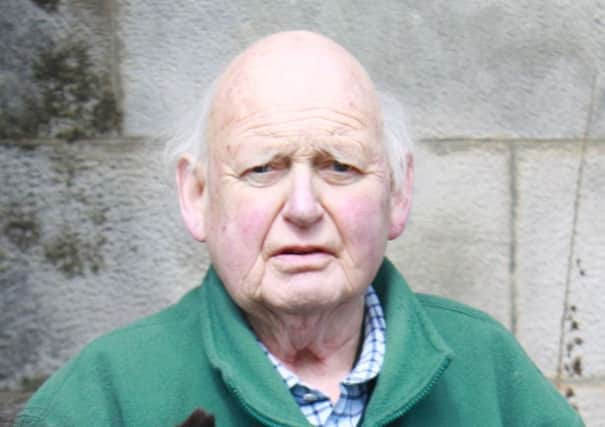Obituary: Dougal Dick, award-winning Shetland pony breeder, judge, breed president and farmer


The Sir William Young Award is one of the most prestigious prizes in the Scottish livestock industry. It is given to individuals for their “outstanding contribution to livestock breeding”. In 2010, the award went to Dougal Dick for his lifetime’s work and efforts in promoting and supporting one of Scotland’s native breeds, the Shetland pony.
These efforts included many years of successes in the show ring but also in the more humdrum world of supporting the work of the breed society as well as the National Pony Society. He spent much of his life promoting the popularity of this iconic breed worldwide in an era where the original purpose of the Shetland as a work horse had long since disappeared.
Advertisement
Hide AdAdvertisement
Hide AdDougal’s own parentage was a contributory factor to his lifelong passion, as his grandfather who lived in Dunfermline set up one of the first Shetland pony studs in 1896. The Transy stud first made its mark on the breed winning the breed championship six years in a row at the Highland Show before the outbreak of the First World War .
His parents carried on this enthusiasm and success for the smallest native breed of pony.
Thus, his forebears set a high bar for Dougal and this was raised higher as he had to re-establish the stud as the land around Dunfermline had been taken over by the army during the Second World War.
The Shetland ponies were farmed out to other enthusiasts during the war period – on condition they registered the foals with the Transy prefix and the surviving ponies returned to Transy in 1953.
Gradually he built up the quality of his ponies; always concentrating on the traditional breed characteristics of elegance along with good action. While other breeders moved into miniature Shetlands and bred according to colour, Dougal bred only standard sized ponies, with quality being his priority.
A move to the livestock farm of Devonshaw to the west of Kinross came in 1968. There he combined his interest in Shetland ponies along with commercial cattle, sheep and arable enterprises. His ponies played an important role in preserving a Site of Special Scientific Interest on the edge of the farm as, at the request of Scottish Natural Heritage, the ponies were allowed to graze the species rich grassland where orchid numbers increased following selective grazing by the ponies.
Dougal’s influence on the breed was both extensive and lengthy and as a sociable and friendly man he soon found himself being asked to go on various committees. He served his first term as Breed President from 1969 until 1971. As someone who had the promotion of the breed at heart, this was followed by another spell in the top seat at the turn of the century. As breed president, he followed both his father and grandfather in that post.
He was in demand as a judge for the Shetlands and other native pony breeds not just in the United Kingdom but across the world and he became close friends with many of the people he met through the ponies both at home and abroad.
Advertisement
Hide AdAdvertisement
Hide AdShetland ponies now feature in many European countries. To help promote the breed, the Society organises an international competition every two years in Europe. Dougal was proud that Transy bred ponies lifted the overall supreme championships when the competition was held in Norway in 2002 and then again in 2006 in Sweden.
Numerous championships were won within the UK, a particular favourite win being Ceres of Transy, a chestnut, winning the Royal Highland Show Shetland Championship in 2002. Although his ponies had won championships at all other shows over the years the Highland Championship had proved elusive and the party afterwards at the stables went on into the small hours.
Dougal was a big fan of the group breeding classes at the Highland and was delighted when Transy won the St Johns Wells Trophy for two ponies by the same sire outright in 2008, (he re-presented the Trophy) as well as winning the prestigious Shetland Pony Society Perpetual Silver Cup for the best group of three ponies on several occasions.
He enjoyed driving Shetland ponies, winning many driving classes with both a single and a pair, and was delighted when Transy bred ridden ponies were successful.
He was helped with the ponies over the years by numerous willing volunteers, much appreciated members of “Team Transy”. Although he never rode himself, he was a keen supporter of the local Pony Club over many years and at Devonshaw hosted pony club camp and many cross country competitions.
In over 65 years breeding top Shetlands, Dougal saw more than 500 of his ponies registered with the breed society. In addition to the European market, Transy ponies have been exported to both North and South America.
In more recent times with his own mobility limited, Dougal has been helped by his daughters Sarah Ross and Carolyn Pleass both of whom have followed their father in showing and judging Shetlands. Although his marriage to Katherine did not survive, they remained good friends to the end of his life.
His deep involvement with the Shetland breed did not allow much in the way of spare time but, in his youth he played hockey and this then, as the years passed, morphed into those farmers’ favourite pastimes, shooting and curling.
Advertisement
Hide AdAdvertisement
Hide AdAt this year’s Highland Show, Dougal observed the judging from his mobility scooter where his daughters and grandchildren – the fourth and fifth generation of the family involved with Shetlands – ensured that Transy ponies continued to be among the prize tickets making him a very happy man.
Andrew Arbuckle